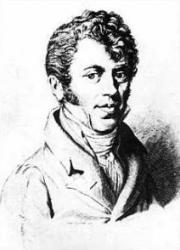Planning worship?
Check out our sister site, ZeteoSearch.org,
for 20+ additional resources related to your search.
- |
User Links
Person Results
C. H. Spurgeon

1834 - 1892 Author of "O God, You Have Cast off Your Saints" in Psalms of Grace Spurgeon, Charles Haddon, the world-famous preacher, was born June 19, 1834, at Kelvedon, in Essex, where his father was Congregational minister. He was educated at Colchester, and at an Agricultural College at Maidstone, after which he was for a few years usher in schools at Newmarket and Cambridge. In 1851 he became minister of a small Baptist church at Waterbeach, near Cambridge, and soon attained great popularity. In 1854 he removed to New Park Street, London, the place where Drs. Gill and Rippon had formerly ministered, and ere long the thronging of people to hear him led, first, to the temporary occupation of Exeter Hall, and of the Surrey Music Hall, and then to the erection of the great Metropolitan Tabernacle, where he still ministers.
Mr. Spurgeon is chiefly known as a preacher and as the author of many vols. of sermons, expositions, and other homiletical literature; but he is also a hymn writer, and the compiler of a well-known hymn book. This book was prepared, in 1866, primarily for the use of the congregation at the Tabernacle. Hence its title Our Own Hymnbook, a collection of Psalms & Hymns for public, social, and private worship. It contains 220 versions of the Psalms, and 910 hymns. Of Mr. Spurgeon's contributions noted below, only one, "Sweetly the holy hymn," can be regarded as possessing any particular merit. The others do not rise above respectable mediocrity. His psalm-versions and hymns, all dated 1866, are:—
1. Amidst us our Beloved stands. Holy Communion.
2. Behold, O Lord, my days are made. Ps. xxxix.
3. Blessed is the man that feareth. Ps. cxii.
4. Here, O ye faithful, see. Holy Baptism.
5. I will exalt Thee, Lord of hosts. Ps. xxx.
6. Jesus, poorest of the poor. Ps. xli.
7. Lord, I would dwell with Thee. Ps. xv.
8. Lord, make my conversation chaste. Ps. lxviii.
9. Lord, Thy church without a pastor. Election of a Minister.
10. Make haste, O Lord, my soul to bless. Ps. lxx.
11. O God, be Thou no longer still. Ps. lxxxiii.
12. O God, Thou hast cast off Thy saints. Ps. lx.
13. Our ears have heard, O glorious God. Ps. xliv.
14. Praise the Lord with exultation, My whole heart, &c. Ps. cxi.
15. Risen Lord, Thou hast received. Election of a Minister.
16. Sweetly the holy hymn. Prayer Meetings.
17. The foes of Zion quake for fright. Ps. liii.
18. The Holy Ghost is here. Prayer.
19. The Kings of earth are in the hands. Ps. lxxxii.
20. Thy strength, 0 Lord, makes glad our King. Ps. xxi.
In addition to these Mr. Spurgeon re-wrote or added to the hymns of others, as "Come ye who bow to sovereign grace"; "Great King of Zion, now"; "O God, before whose radiant throne"; and "Woe's me that I in Mesech am"; and composed two Graces for before, and two for after Meat. [Rev. W. R. Stevenson, M.A.]
-- John Julian, Dictionary of Hymnology (1907)
C. H. Spurgeon
William B. Bradbury

1816 - 1868 Person Name: William Bradbury Composer of "SOLID ROCK" in Psalms of Grace William Batchelder Bradbury USA 1816-1868. Born at York, ME, he was raised on his father's farm, with rainy days spent in a shoe-shop, the custom in those days. He loved music and spent spare hours practicing any music he could find. In 1830 the family moved to Boston, where he first saw and heard an organ and piano, and other instruments. He became an organist at 15. He attended Dr. Lowell Mason's singing classes, and later sang in the Bowdoin Street church choir. Dr. Mason became a good friend. He made $100/yr playing the organ, and was still in Dr. Mason's choir. Dr. Mason gave him a chance to teach singing in Machias, ME, which he accepted. He returned to Boston the following year to marry Adra Esther Fessenden in 1838, then relocated to Saint John, New Brunswick. Where his efforts were not much appreciated, so he returned to Boston. He was offered charge of music and organ at the First Baptist Church of Brooklyn. That led to similar work at the Baptist Tabernacle, New York City, where he also started a singing class. That started singing schools in various parts of the city, and eventually resulted in music festivals, held at the Broadway Tabernacle, a prominent city event. He conducted a 1000 children choir there, which resulted in music being taught as regular study in public schools of the city. He began writing music and publishing it. In 1847 he went with his wife to Europe to study with some of the music masters in London and also Germany. He attended Mendelssohn funeral while there. He went to Switzerland before returning to the states, and upon returning, commenced teaching, conducting conventions, composing, and editing music books. In 1851, with his brother, Edward, he began manufacturring Bradbury pianos, which became popular. Also, he had a small office in one of his warehouses in New York and often went there to spend time in private devotions. As a professor, he edited 59 books of sacred and secular music, much of which he wrote. He attended the Presbyterian church in Bloomfield, NJ, for many years later in life. He contracted tuberculosis the last two years of his life.
John Perry
William B. Bradbury
Sigismund Neukomm

1778 - 1858 Person Name: Sigismund Ritter von Neukomm, 1778-1858 Composer of "AMES" in The Cyber Hymnal Sigismund Ritter von Neukomm, b. Salzburg, 1778; d. Paris 1858
Evangelical Lutheran Hymnal, 1908
Sigismund Neukomm


 My Starred Hymns
My Starred Hymns

